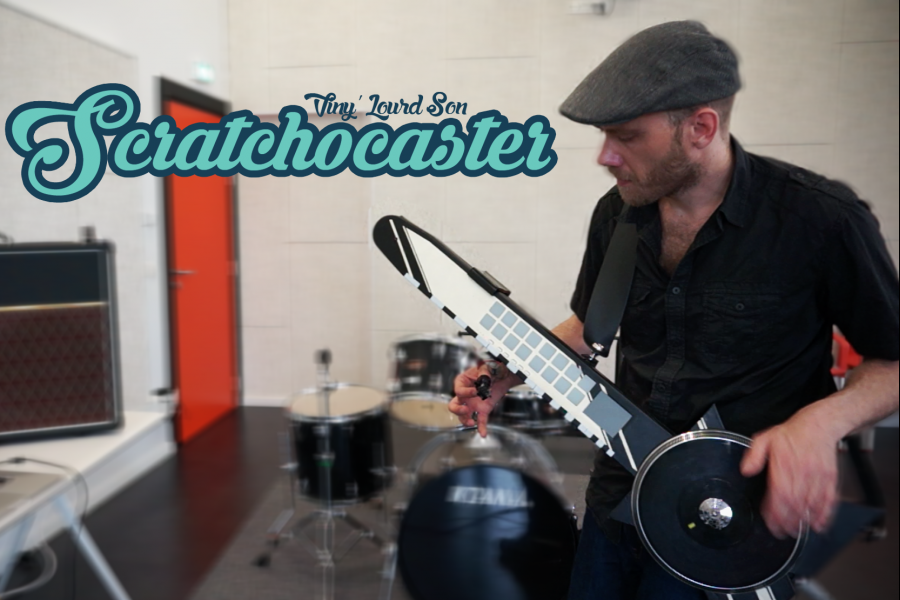Making the Switch
With so many options out there, though, it’s hard to tell where to start. What kind of setup do I need? How will it sound? Portability? Software? Wheels or just buttons and knobs?
There are virtually unlimited options when it comes to landing the right controller. Some models are built with the traditional dj method in mind, while others are functional in regards to live performance, looping, effects, the works. Here are a few things to think about as a first step to finding your digi-control fit.
Should I go for all-in-one or modular? – Modular is when you build up a control system of “separates”, a bit like a hi-fi with separate amp, radio, CD player etc. Whereas all-in one controllers are definitely best for the vast majority of users (they’re self-contained, and easy to set up and use), if you’re more experienced, you play with digital vinyl, or regularly DJ in clubs, you may prefer the flexibility of a modular system. Just bear in mind that you’ll need to ensure you buy the right “bits” to make the whole, you’ll probably need a separate sound card (see point 3 below), and such systems invariably need a lot more work to get them how you want them than “all in one” systems
What software is best for the hardware I want? (Or vice versa) – All DJ controllers come with software in the box. Frankly, unless you know what you’re doing, you are definitely best sticking with the software the manufacturer suggests and offers. Especially nowadays, software and hardware manufacturers – if not the same company – are working far more effectively together to make sure your experience is a good one when you use their products as suggested. The big thing to watch out for is “LE” or “Intro” software. This is “cut down” software designed to “get you going”. Bottom line is you’ll want to upgrade, which is an extra cost, and it can be as little as $40 (Traktor, currently on offer) up to a whopping $300 (Virtual DJ when full price is paid)
Do I need a controller that also has CD players or USB connectivity? – It can be tempting, especially when you’re coming from CD or even vinyl to digital, to go for a system that can work with not only with a laptop and software, but that also works with USB sticks and CDs. This will cover the best of both worlds, goes the thinking. In truth, for most DJs, you’ll find you rarely if ever end up using the CD or USB functions, as it’s so much more fun to use digital with its waveforms, FX and extra goodies. If you’ve got a huge CD collection you don’t ever want to “rip” to digital, or you’re a mobile guy, or you definitely know you’re going to want to DJ sometimes without a laptop, by all means go for such a system – but in our experience, most people end up wishing they’d just gone all the way and chosen out-and-out digital model
Should I buy a cheaper, older model, or go for a recently released controller? – Two things here. Firstly, controllers made more than, say, three years ago, tend to have worse jogwheel performance than modern controllers. That means the jogwheels don’t sound as good when you’re doing vinyl-type stuff with them, and they’re not as responsive. Secondly, older controllers may not be supported actively by the software companies. If the controller you’re thinking of is not hugely old, and can work with the most modern version of the software package it comes with/you want to use it with, then you may be able to snag a bargain here, but if you’re not sure, then go for something recent
How do I know if I need a “sound card” or “audio interface” as well? – A few years ago, you always needed one of these, as controllers were just that – controllers, designed to control the DJ software. Nowadays, practically all but the cheapest have audio built-in too. That means they take the task of actually making the sounds away from the computer and do it internally with their own circuitry, typically upping the quality and giving all the outputs a DJ needs. It’s totally simple to check if the controller in front of you has a built-in audio interface or not: See if you can find a headphones socket on it. If you can, you’re covered. If not, or if you’re building up a modular system, you’re going to need one, and the minimum spec for a DJ sound card is “4-out”


 Other blog items you might be interested in...
Other blog items you might be interested in...


